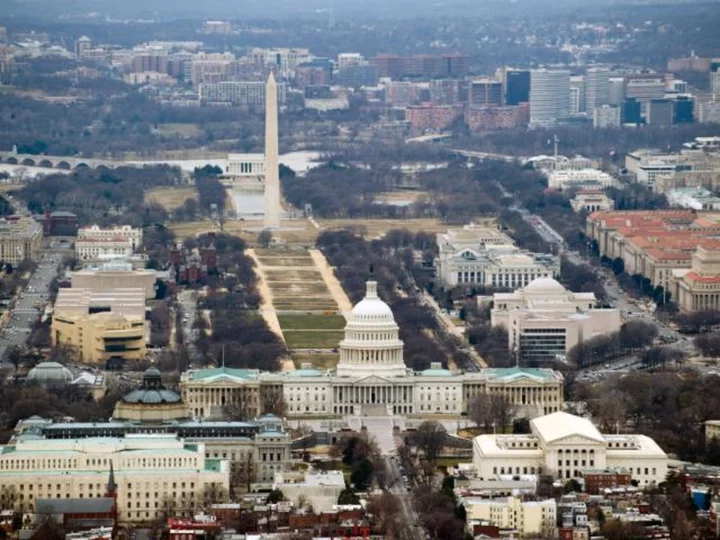Republicans on the House Oversight Committee are demanding that the White House explain what motivated a recent push for federal employees to work more in-person.
In a letter sent Thursday and obtained by CNN, Chairman James Comer, Rep. Pete Sessions, the chair of a federal workforce subcommittee, and Rep. Lauren Boebert questioned whether the Biden administration's post-pandemic telework policy led to "reduced productivity" by federal employees after a recent White House call for more in-office work.
House Republicans have been criticizing the Biden administration's telework policies and passed the SHOW UP Act that would force federal offices to reimplement pre-pandemic work policies. Comer has argued the administration allows "indiscriminate, unaccountable" levels of telework.
Earlier this month, White House chief of staff Jeff Zients emailed the heads of federal agencies and told them to "aggressively" shift their staffs toward in-person work. Zients cited the end of the Covid-19 emergency, wrote that in-person work can lead to increased productivity and called the shift a "priority of the President."
"By suggesting that in-person work would lead to improved outcomes, your email implies that the Biden Administration's widespread use of post-pandemic federal telework has resulted in reduced productivity, diminished customer service, and worse overall returns for the American taxpayer," the letter, which was addressed to Zients, states.
The lawmakers ask that the White House explain the rationale of the return-to-office message, which was sent the same day the committee requested information from about two dozen federal agencies regarding the number of employees teleworking.
"With the worst effects of the COVID pandemic long behind us, the timing and motivation of the Administration's sudden push for increased in-person work calls for a more formal explanation," the letter states.
In one response, the Department of Homeland Security informed the oversight committee that out of about 35,000 DHS employees in the Washington, DC, region, nearly 21,000 are eligible to telework and about 19,000 currently have schedules that include telework, a committee spokesperson told CNN. That data did not specify how often those employees telework.
The agency's website states that DHS has more than 260,000 total employees.
The White House and DHS did not immediately respond to a request for comment.
A Republican aide with the oversight committee told CNN the committee is tentatively planning to hold a hearing on September 14 on the issue of federal telework and remote work policies. The aide added that the committee still has requests pending with federal agencies for information on workforce-performance measures.
The August email from Zients is not the first time the Biden administration has pushed for more federal in-office work.
In April, the administration released guidance that said employees should "substantially" increase such work. In a blog post that month, Jason Miller, the deputy director for management at the White House Office of Management and Budget, called on agencies to continue to assess "what is working well, what is not, and what can be improved" but also noted a "general expectation" for more in-person work.
A Government Accountability Office report published in July found that federal buildings are "underutilized" due in part to telework, and that 17 of 24 federal agencies reviewed used about a quarter or less of their headquarters buildings' capacity on average.
But the GAO also found in an analysis publicly released this month that across the US workforce, telework has generally appeared to increase productivity in certain sectors, though the analysis noted challenges in estimating long-term impacts of telework.









